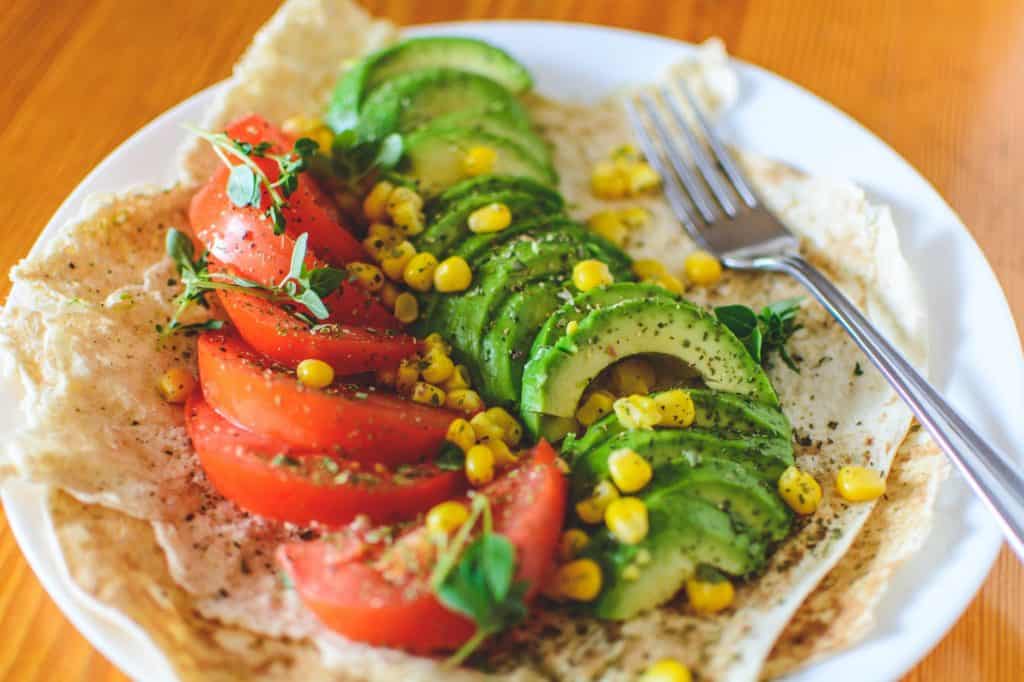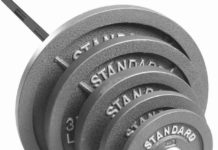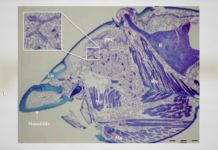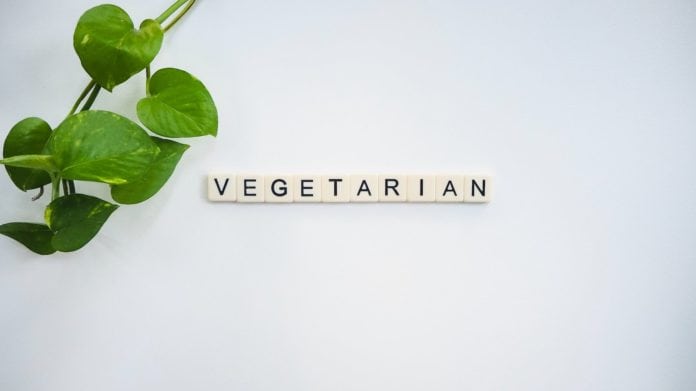Table of Contents
What is a Vegetarian Diet?
A vegetarian diet is an eating pattern that emphasizes plant-based foods. The main components of a vegetarian diet include whole grains, legumes, fruits, vegetables, nuts, and seeds. Animal products, such as meat, fish, eggs, and dairy, are excluded from this type of diet.
Vegetarianism is not just about the food one eats, but also the lifestyle choices one makes. People who follow a vegetarian diet may also choose to limit their consumption of animal-derived products such as leather and fur. Other aspects of a vegetarian lifestyle include avoidance of products tested on animals, choosing organic produce, and decreasing their impact on the environment.
There are various types of vegetarian diets, and they range from people who only eat plant-based foods to those who consume some animal products. This guide will explore the various types of vegetarian diets, their benefits, and how to make the transition to a vegetarian lifestyle.
Benefits of a Vegetarian Diet
Adopting a vegetarian diet can have numerous health benefits. There are several ways that following a vegetarian diet can ensure you lead a healthier and more balanced lifestyle.
One of the key benefits of a vegetarian diet is that it is very low in saturated fat, as meat and animal-based products are largely absent. This means that, compared to a standard diet which includes meat, a vegetarian diet can significantly reduce your chances of developing high cholesterol or heart related diseases. A vegetarian diet also tends to be rich in fiber and minerals, meaning that it can help protect against obesity, diabetes and certain other chronic illnesses.
In addition to this, a vegetarian diet can help protect the environment. Eating less meat and other animal products means that fewer resources are used in their production, leading to reduced environmental pollution and better sustainability.
Finally, a vegetarian diet is generally much cheaper than a diet which includes a lot of meat or other animal-based products. This is because plant based foods tend to be less expensive than meat, so following a vegetarian diet can save you money when you do your grocery shopping.
Types of Vegetarian Diets
For those considering a vegetarian lifestyle, there are many types of vegetarian diets available to choose from. Each type of vegetarian diet has its own unique benefits and challenges, so it is important to consider all options before deciding which one is right for you. The following are four of the most popular types of vegetarian diets:
- Flexitarian Diet: The Flexitarian Diet is a type of vegetarian diet that allows for occasional meat consumption. This type of diet can be beneficial for people who appreciate the benefits of eating a vegetarian diet, but want to allow for some flexibility.
- Lacto-Ovo Vegetarian Diet: A Lacto-Ovo Vegetarian Diet excludes all forms of meat and fish, but includes dairy products and eggs. This is the most common type of vegetarian diet, as it is fairly easy to follow and allows for a wide variety of tasty dishes.
- Lacto Vegetarian Diet: A Lacto Vegetarian Diet excludes all forms of meat, fish, and eggs, but allows for the consumption of dairy products. This type of vegetarian diet is helpful for individuals who suffer from digestive issues related to eggs and want to minimize the amount of animal products they consume.
- Vegan Diet: A Vegan Diet is a type of vegetarian diet that excludes all forms of animal products, including meat, fish, eggs, and dairy. This can be the most difficult type of vegetarian diet to follow because it can be more challenging to get enough protein, iron, calcium, and other essential vitamins and minerals.
It is important to remember that different people have different needs and preferences when it comes to their diet. There is no right or wrong answer when it comes to choosing the best type of vegetarian diet for you, so take the time to explore all options and find which one is most suitable for your lifestyle.
Essential Nutrients for Successful Vegetarian Diets
Following a vegetarian diet can be extremely beneficial to your overall health and wellbeing. However, it is important to remember that in order to make sure that you are getting all of the essential nutrients your body needs, it is important to carefully plan out your meals. A vegetarian diet may not include some key nutritional components found in meat, dairy, and eggs. Some of these important nutrients include:
- Protein – Essential for muscle growth and repair
- Iron – Necessary for red blood cell formation and carrying oxygen around the body
- Vitamin B12 – Essential for keeping our immune system healthy
- Calcium – Needed for strong bones and teeth
- Vitamin D – Necessary for good bone health
- Omega-3 Fatty Acids – important for heart health and brain development
Fortunately, there are many sources of these vital nutrients from plant-based foods. Some excellent sources of protein include legumes, tofu, seitan, quinoa, tempeh, and nuts. Iron can be found in lentils, beans, nuts, and leafy greens such as spinach and kale.
Vitamin B12 can be sourced from fortified plant milks, nutritional yeast, and fortified cereals. Calcium can be found in almonds, sesame seeds, fortified orange juice, broccoli, and other leafy green vegetables.
Vitamin D can be obtained from exposure to sunlight, mushrooms, and fortified plant milks. Lastly, omega-3 fatty acids can be found in flaxseeds, chia seeds, walnuts, and certain types of algae. Including these foods in your meals regularly will ensure that you are getting all of the essential nutrients you need to stay healthy.
Additionally, if you are worried about not getting enough of a particular nutrient you can look into taking a multivitamin supplement.
How to Incorporate Vegetarianism into Your Lifestyle
Going vegetarian can be an intimidating lifestyle decision, but it doesn't have to be. Whether you choose a vegetarian lifestyle because of your ethical beliefs, medical reasons, or other motivations, there are some steps that you can take to make the transition smoother.
First, it's important to know the different types of vegetarian diets. There are variations such as veganism, lacto-ovo vegetarianism, semi-vegetarianism, flexitarianism, and pescatarianism. Research these different ways to ensure that you make an informed choice about which works best for you.
Second, it is essential to know what nutrients your body needs. This will help you ensure that you get the right balance of minerals, vitamins, proteins, carbohydrates, and other elements that are essential for a healthy lifestyle. If you need help finding this information, seek out nutritionist or dietician who has experience in working with vegetarians.
Third, look at recipes and meal plans. Once you understand the type of vegetarian diet that works best for you and have outlined the essential nutrients, look for ideas on how to incorporate them into your meals. Expand your palate with recipes focusing on plant-based proteins, vegan alternatives to traditional favorites, international flavors, and unusual ingredients.
Fourth, make sure that you have access to quality food sources. Many grocery stores are expanding their selection of vegetarian offerings, but you can also consider looking for local farmers markets, grocery delivery services, and health food stores. Being aware of the options available to you is key to making sure that you get all the nutrients you need and never feel deprived.
Fifth, build a support system. It can be helpful to connect with other vegetarians so that you can share recipes, swap tips, and discuss challenges. Look for friends who are like-minded, join a local meetup group, or find an online community. Having access to resources and a supportive network can help make the transition easier.
Finally, stay motivated. Following a vegetarian lifestyle can be difficult, especially in the beginning. Be mindful of your progress and celebrate your successes. Find joy in the process of trying new recipes and experimenting with ingredients. Even if you're not perfect, every step you make towards a vegetarian diet is still beneficial for you and the planet.

Recipes & Meal Ideas for Vegetarian Diets
Vegetarian diets do not have to be boring and tasteless. There is an abundance of delicious and nutritious meals and recipes that can accompany a vegetarian diet. Here are some great ideas to get you started on wholmesome, delicious and meat-free dishes.
For breakfast, many people begin the day with oatmeal or a smoothie bowl. Oatmeal can be cooked with a variety of toppings and fillings from dried fruits, nuts, and seeds to peanut butter or yoghurt. Smoothie bowls are created with a blend of fruits, vegetables and vegan milks to create a nourishing and filling meal filled with vitamins and minerals.
Snacks can include cut up fresh fruits and vegetables, homemade granola bars, and energy balls. Fresh fruits like apples, grapes, and oranges make a great snack on their own or paired with some nut butter. Home made granola bars and energy balls are convenient snacks that provide a lot of energy and nutrition in a smaller package.
For lunch and dinner, the possibilities are endless. Vegetarian tacos with black beans, quinoa, or lentils as the base and topped with sliced avocado and salsa is one easy and tasty option. Other great options are pasta dishes, salads, stir fries, and veggie burgers. All these meals can be made completely plant-base with lots of fresh vegetables and grains.
Making meals for a vegetarian diet can be fun and creative. Experimenting with different grains like quinoa, bulgur wheat, and rice is an easy way to switch up meals. Adding herbs and spices to meals will help to boost flavor and enhance any dish. Tempeh and tofu are both vegetarian proteins that can easily be added to meals for extra protein.
If you’re looking for something sweet, there are endless options such as vegan ice cream, fruit crumble, and muffins. Baked goods are a great way to satisfy a sweet tooth without dairy or eggs. Desserts can be as simple as a bowl of frozen berries and vegan whipped cream or as decadent as raw vegan cheesecake.
Creating meals for a vegetarian diet doesn't have to be daunting. With some creativity and experimentation, you can make delicious and nutritious meals that are both pleasing to the palette and beneficial to your health.
Connecting With Others Who Adopt a Vegetarian Lifestyle
There are many ways to connect with others who are living a vegetarian lifestyle. Social media, such as Facebook and Instagram, have made it easier than ever before to connect with like-minded vegetarians from all across the world. Additionally, local communities often have vegetarian and vegan groups that offer regular meetups, potlucks, and other activities for members.
Joining these groups can be beneficial for vegetarians of all ages and experience levels. It allows them to share their experiences, find support, and gain invaluable insight and tips from more experienced vegetarians. You can even join online forums or subscribe to email newsletters that discuss vegetarian topics to foster even more connections.
It can also be helpful to attend vegetarian events, such as conferences, festivals, or dinner parties. These events are great for socializing with other vegetarians and discussing the benefits and challenges of following a vegetarian diet. Plus, they’re fun and a great way to try new recipes and learn about different cultures.
Finally, you can look for virtual support groups, especially if you don’t have any vegan or vegetarian friends in your local area. There are many websites and online platforms that provide a variety of resources such as meal plans, recipes, and health tips – all devoted to vegetarian lifestyles.
Addressing the Challenges of Eating a Vegetarian Diet
For those who are interested in adopting a vegetarian lifestyle, there may be challenges along the way. One of the biggest challenges that vegetarians face is getting enough of the essential nutrients their bodies require.
It's important to make sure your vegetarian diet is balanced and includes enough protein, calcium, iron, zinc, vitamin B12, and essential fatty acids. A common misconception about vegetarian diets is that it is boring and restrictive.
However, there are plenty of meals that can be made with vegetarian ingredients that still provide a variety of flavors. To ensure that you enjoy eating vegetarian dishes, experiment with different seasonings and spices that will liven up your meals.
Additionally, familiarizing yourself with new plant-based proteins and other ingredients can open up a world of possibilities. It can also be difficult to find vegetarian dishes when dining out. When ordering from a restaurant, make sure to ask questions about the ingredients before deciding on a meal. Most restaurants should be able to provide information about the ingredients used to prepare their dishes.
Also, look for recognizable vegetarian dishes, like veggie burgers, salads, and rice bowls. Eating a vegetarian diet may sometimes feel daunting or overwhelming, but with some planning and preparation, it can be an enjoyable experience. Part of the process should include research, getting to know the ingredients you’ll be cooking with, and setting realistic goals for yourself.
For instance, instead of trying to go completely vegetarian all at once, start by gradually cutting back on your meat consumption.
Overall, eating a vegetarian diet is a healthy and sustainable way to fuel your body, while also protecting the environment. Your diet can be tailored to fit your individual needs, and with determination and a little creativity, you can successfully make the switch to a vegetarian diet.
Meal Planning Tips for Vegetarians
Having a vegetarian diet involves a lot of careful meal planning. Unlike omnivores, vegetarians must be mindful of their protein, iron, calcium, zinc, and vitamin B12 levels to ensure they are getting enough nutrients from their food. Here are some tips for meal planning for vegetarians.
Plan Ahead
Planning ahead is key to a successful vegetarian diet. Think about what you want to eat for the week, and make sure to have all the necessary ingredients on hand. It also helps to plan meals in advance, as it can be difficult to come up with ideas when you’re feeling rushed or overwhelmed. Make sure to give yourself enough time to prepare and enjoy your meals.
Vary Your Sources of Protein
Protein is essential, especially if you’re an athlete or an active individual. To make sure you’re getting enough, vary your sources of protein. Some vegetarian-friendly sources include beans, lentils, peanuts, almonds, tempeh, tofu, seitan, and quinoa.
Consider Meal Replacement Shakes and Bars
Meal replacement shakes and bars are a great way to get the nutrition you need when you’re short on time. They are pre-packaged and easy to take with you on the go. Just make sure to read the nutrition facts to make sure they are suitable for vegetarians.
Experiment With New Ingredients and Recipes
Don’t be afraid to experiment with new ingredients and recipes. But remember to focus on nutrient-dense foods, such as legumes, whole grains, nuts, seeds, and vegetables. Try to create meals that have a balance of protein, carbohydrates, and healthy fats.
Start Off Slowly
If you are new to the vegetarian lifestyle, start off slowly. Start by substituting one or two meals a week, then work your way up. This will help you ease into the lifestyle and make the transition easier.
Meal Prep Strategies For Vegetarians
Adopting a vegetarian diet can be challenging, especially when it comes to meal prepping. Meal prepping is essential for ensuring that you are getting proper nutrition, varying your meals and saving time. There are several strategies for successfully meal prepping as a vegetarian.
Keep It Simple
When it comes to meal prepping, simpler is often better. If you're just starting out with a vegetarian lifestyle, try to focus on preparing meals that only require minimal ingredients. This will help to make meal prepping easier and less overwhelming.
Identify Your Staples
In any vegan or vegetarian meal plan, there should be certain staples that are always included. These can include grains such as rice, quinoa, oats, and couscous; legumes such as chickpeas, black beans, kidney beans, and lentils; and vegetables such as kale, tomatoes, onions, broccoli, and mushrooms. Having these staples at your disposal will make it easy to throw together a quick, nutritious meal.
Batch-Cooking
Batch-cooking is an effective way to meal prep while on a vegetarian diet. Try to spend one day per week preparing your meals in bulk. This will save you time throughout the week and allow you to enjoy a variety of meals without excessive cooking or cleaning. Soups and stews can easily be made in large quantities and will often last for several days in the fridge. Other batch-cooking ideas include preparing grain bowls, roasted vegetables, veggie burgers, and falafels.
Be Flexible
Meal prepping doesn't need to be an exact science. Sometimes you may find that you don't have all of the ingredients on hand to make a particular recipe or meal, or you may simply get tired of eating the same thing every day. Be flexible and don't be afraid to experiment with different ingredients. You may come across some unexpected flavour combinations that you really enjoy!
The Impact of Going Vegetarian
Switching to a vegetarian diet can have a profound effect on the environment and our health. For starters, eating a plant-based diet reduces our carbon footprint – that is, the amount of CO2 released into the atmosphere as a result of our lifestyle choices.
Research shows that animal-based products, especially those from ruminant animals, are responsible for over 14.5% of human-induced greenhouse gas emissions. Eating a vegetarian diet helps to reduce these emissions.
Adding more plants to your diet also improves heart health and blood cholesterol levels. Plant-based foods are low in saturated fat and high in fiber, vitamins, minerals, and antioxidants that help protect against disease. Plus, going vegetarian is associated with a lower risk of many diseases, including obesity, type 2 diabetes, and some forms of cancer.
Making the transition to a vegetarian diet can also be beneficial for people with food allergies and intolerances. A plant-based diet is naturally free of animal products, which eliminates the risk of accidentally consuming an allergen. Eliminating animal-based products from your diet can make it easier to manage food allergies and intolerances.
Wrapping Up and Reiterating the Benefits of a Vegetarian Diet
Adopting a vegetarian diet comes with a range of personal, environmental and animal welfare benefits. Eating a vegetarian diet means you don't consume any animal products, such as meat, fish, dairy or eggs. This makes it easier for the body to absorb all the essential nutrients it needs to stay healthy and well-nourished. Plus, following this kind of lifestyle has been associated with a reduced risk of some diseases.
There are different types of vegetarian diets to choose from, so do your research to find out which works best for you. Also make sure that you are eating a variety of nutritious plant-based foods and whole grains to ensure that you get the required vitamins and minerals.
Whenever possible, try to look for fresh produce to get all the necessary nutrients and antioxidants. Finally, connecting with people who follow the same type of dietary lifestyle can be a great way to motivate yourself and to gain valuable insights about living a healthier vegetarian lifestyle.
By following a vegetarian diet you can improve your general health, reduce your environmental footprint and help animals. Ultimately, you should do what works best for you and your body, but by making simple switches in your diet you can have a powerful impact on the health of our planet.
Frequently Asked Questions About a Vegetarian Diet
- Q: What is a vegetarian diet?
A: A vegetarian diet is a way of eating that eliminates the consumption of all animal products, including meat, fish, poultry, and seafood. - Q: What are the benefits of a vegetarian diet?
A: A vegetarian diet has many potential health benefits such as reducing the risk of developing obesity and type 2 diabetes, lowering cholesterol levels, and protecting against certain types of cancer. - Q: What types of vegetarian diets are there?
A: There are several types of vegetarian diets including lacto-ovo vegetarian, lacto vegetarian, ovo vegetarian, pescatarian, and vegan. - Q: What essential nutrients are needed to adhere to a successful vegetarian diet?
A: Adequate intakes of essential nutrients are necessary for a successful vegetarian diet such as protein, calcium, iron, zinc, Vitamin B12, Vitamin D, and Omega-3 fatty acids. - Q: How do I incorporate vegetarianism into my lifestyle?
A: Incorporating vegetarianism into your lifestyle can be done by gradually reducing the amount of animal products in meals and incorporating plant-based foods. - Q: Are there recipes for vegetarian diets?
A: Yes! There are a variety of recipes for vegetarian diets, including soups, salads, wraps, burgers, and buddha bowls. - Q: Are there resources to help with vegetarian meal planning and preparation?
A: Yes! There are many resources available to help with meal planning and preparation, such as online websites, blogs, cookbooks, and meal delivery services.
















